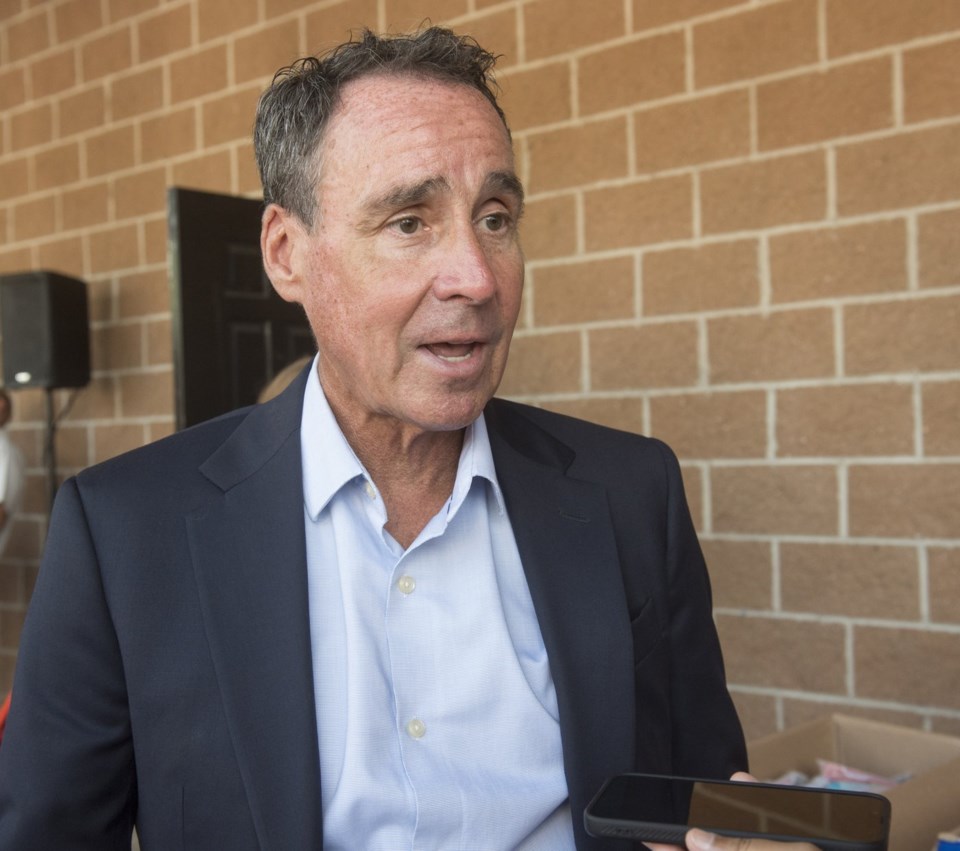FREDERICTON — A riding in southwest New Brunswick that for decades was a Progressive Conservative stronghold is shaping up to be a bellwether that could offer a window into the future of the Tory party, and maybe of the province.
The Progressive Conservatives are putting up Faytene Grasseschi, an activist and Christian TV host, in the Hampton-Fundy-St. Martins riding. The Liberals, meanwhile, have also nominated a conservative — at least a former one.
John Herron, a two-term Progressive Conservative member of Parliament, agreed to join the Liberals because of the threat he said his opponent represents. His candidacy is a reflection of the schism among the Progressive Conservatives, many of whom have chosen to sit this election out because of the direction they said the party is going under Tory Leader Blaine Higgs, who is seeking a third term in office.
"Realistically, there are just two candidacies who could win this seat," Herron told a meet and greet in the riding earlier this week, organized by the local chamber of commerce.
He didn't mince words: "Ours and this version of the Conservatives, whose candidacy lives outside the fringes of this riding, and who represents an extreme fringe politics that goes beyond the moderate traditions of the province."
Grasseschi told the crowd that she decided to get involved in provincial politics last summer, during the controversy that erupted when the Higgs government forced teachers to get parental consent before they could use the preferred first names and pronouns of transgender and nonbinary students under 16. The change triggered outcry across the country, including from Prime Minister Justin Trudeau.
But Higgs persisted, saying parents must be informed if their children are questioning their gender identity.
Grasseschi said her desire to run for office came when "I witnessed a senior citizen being assaulted," referring to the 70-year-old premier of New Brunswick.
"He was being assaulted by the liberal media because he took a stand for parents, for the simple position that things shouldn't be hidden from loving parents when it comes to their minors at school."
Many Tories don't agree with Higgs and Grasseschi. Twelve members of the Progressive Conservatives elected in 2020 chose not to run again, some citing the direction Higgs was taking the party. The Tory leader also faced a mutiny by disaffected riding association presidents who tried and failed to oust him as leader.
Higgs has said Grasseschi's arrival has attracted "a lot of new members to the party," and that he was not concerned that her beliefs could alienate socially progressive people. "We have a very diverse population and it is becoming more diverse. And we must respect the individual rights, freedoms and beliefs of each individual."
J.P. Lewis, a political science professor at the University of New Brunswick in Saint John, said if the Progressive Conservatives and Grasseschi win, then that would be the "clearest test" of the direction of the party.
"It could be a sign that the party membership, or the eventual caucus, are shifting to a different place."
Lewis said the riding is also interesting because of Grasseschi's high social media profile. She is a well-known figure in Christian conservative circles and is the author of several books.
In one of her books, "Marked," published in 2009 under her maiden name Kryskow, she wrote about God speaking to her and described same-sex marriage as a threat to traditional marriage — even suggesting it could lead to man being able to marry a dog.
Grasseschi, Lewis said, has "become the face of Higgs's move further to the right again. Because she's higher profile, because of her YouTube following and things like that, and because of the fact that the nomination contest actually got news coverage, which many don't … I think for all those reasons, (this riding) is significant."
One way to gauge whether voters are happy with the choice in Grasseschi is how many people show up to pick Higgs's candidate, Lewis said. In 2020, the Progressive Conservatives got 4,351 votes, 61 per cent; Liberals got 1,084, good for 15 per cent; and the Greens took 816 votes, or 11 per cent.
Kent McNeilly, a resident of the riding who attended the meet and greet, said the results of the election in the riding could signal whether politics in the province is moving further to the right.
"This riding they used to say … federally and provincially, you can put a blue coat on a dog, and he'd win. Very rarely do we not go blue," he said, referring to the Conservatives. "But there's a good possibility that we might not go blue this time."
Green candidate Laura Myers said the fact that former Tories are running on Liberal tickets speaks more about the direction of the Progressive Conservative party than anything else.
A number of people are disenchanted with the federal Liberal government, and that displeasure has trickled down to provincial politics, Myers noted. But she also said people have told her they are unhappy with the incumbent Tories.
Myers said she has lived in the riding for 34 years and usually Green candidates did not expect to win. "And now, I mean, I would say everything has changed . … I think the Greens have some momentum, and not just in this riding."
This report by The Canadian Press was first published Oct. 5, 2024.
Hina Alam, The Canadian Press



